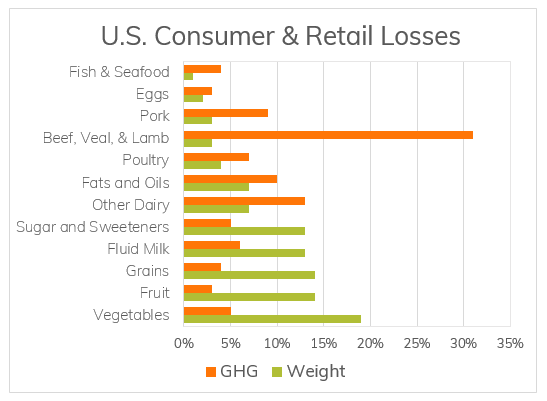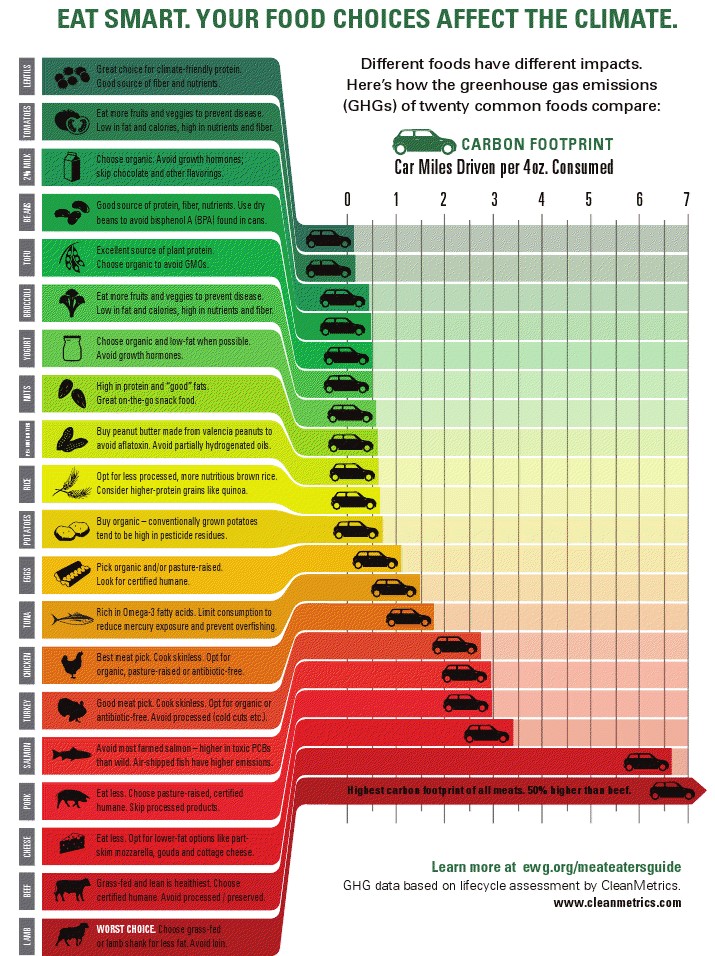Not only is it important to reduce wasted food overall, it is also important to be really careful about what you waste.
Most reports and figures discuss wasted food in volume or weight, but that's only part of the picture.
There are foods that use exponentially more resources than others during their journey to feed you... from being created, to transported, stored for purchase, then stored and cooked at home, and finally disposed of.
In general, animal based foods will have a bigger impact than plant based foods on the land, water, and on global climate change. We must be mindful of wasting resource intensive foods.
THE SOLUTION
Whenever possible, choose foods that are:
- SEASONAL - grown in open fields rather than in resource-intensive greenhouses year-round
- ORGANIC OR NO-SPRAY - grown using fewer fertilizers and chemical inputs
- LOWER FOOD MILES - grown closer to home, traveling fewer miles to get from farm to you

A recent research paper, Greenhouse Gas Emission Estimates of U.S. Dietary Choices and Food Loss by Heller and Keoleian in 2015, looked into the nexus between types of food wasted, their weight and the greenhouse gasses produced from that weight of wasted food. The graph, adapted from their data shows that despite a small percentage of weight of animal based foods wasted, their carbon footprint is still generally higher than plant based foods.
Learn more at our Food Fact Sheets page.
Our globalized food system means that we share the burden of impacts caused around the world. Looking at the world-wide scale of wasted food, the Food and Agriculture Organization (FAO) of the United Nations states,
Despite meat being a relatively low contributor to global food wastage in terms of volumes (less than 5% of total food wastage) it has a significant impact on climate change, contributing to over 20% of the carbon footprint of total food waste. This is because meat carbon footprint includes the emissions from producing a kilogram of meat (e.g. the methane emitted by ruminants), the emissions related to feed provision (e.g. the fertilizer used for the production of feed) and emissions from manure management.
You can read more about the global impact on the atmosphere, water, soil and biodiversity in the report here. Impacts on Natural Resources Food Wastage Footprint: Summary Report


